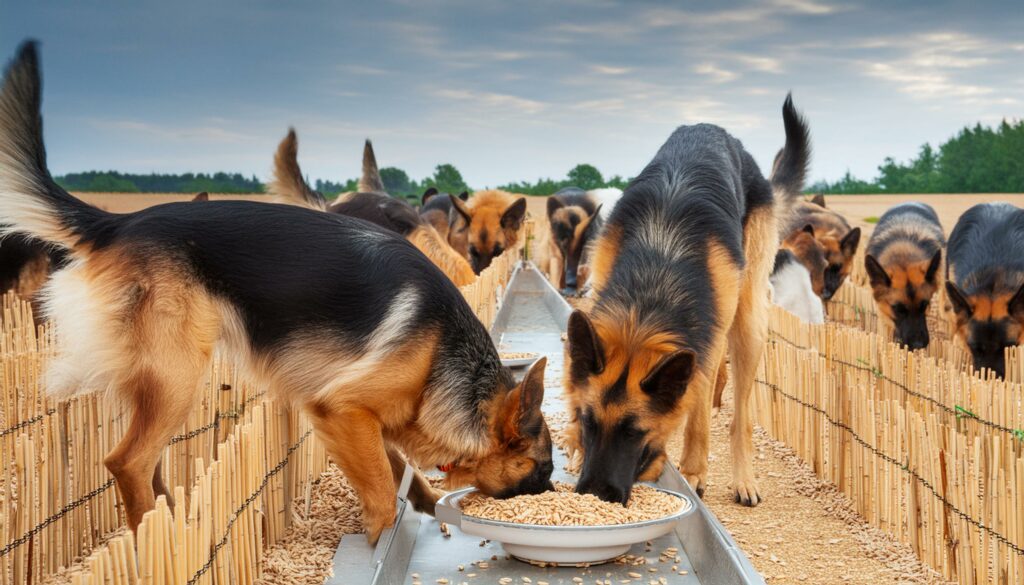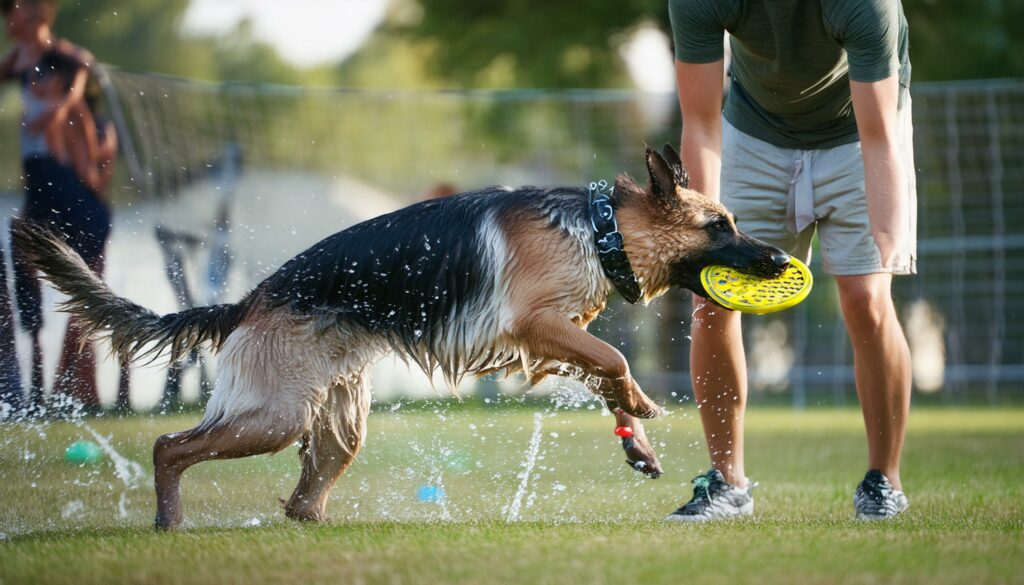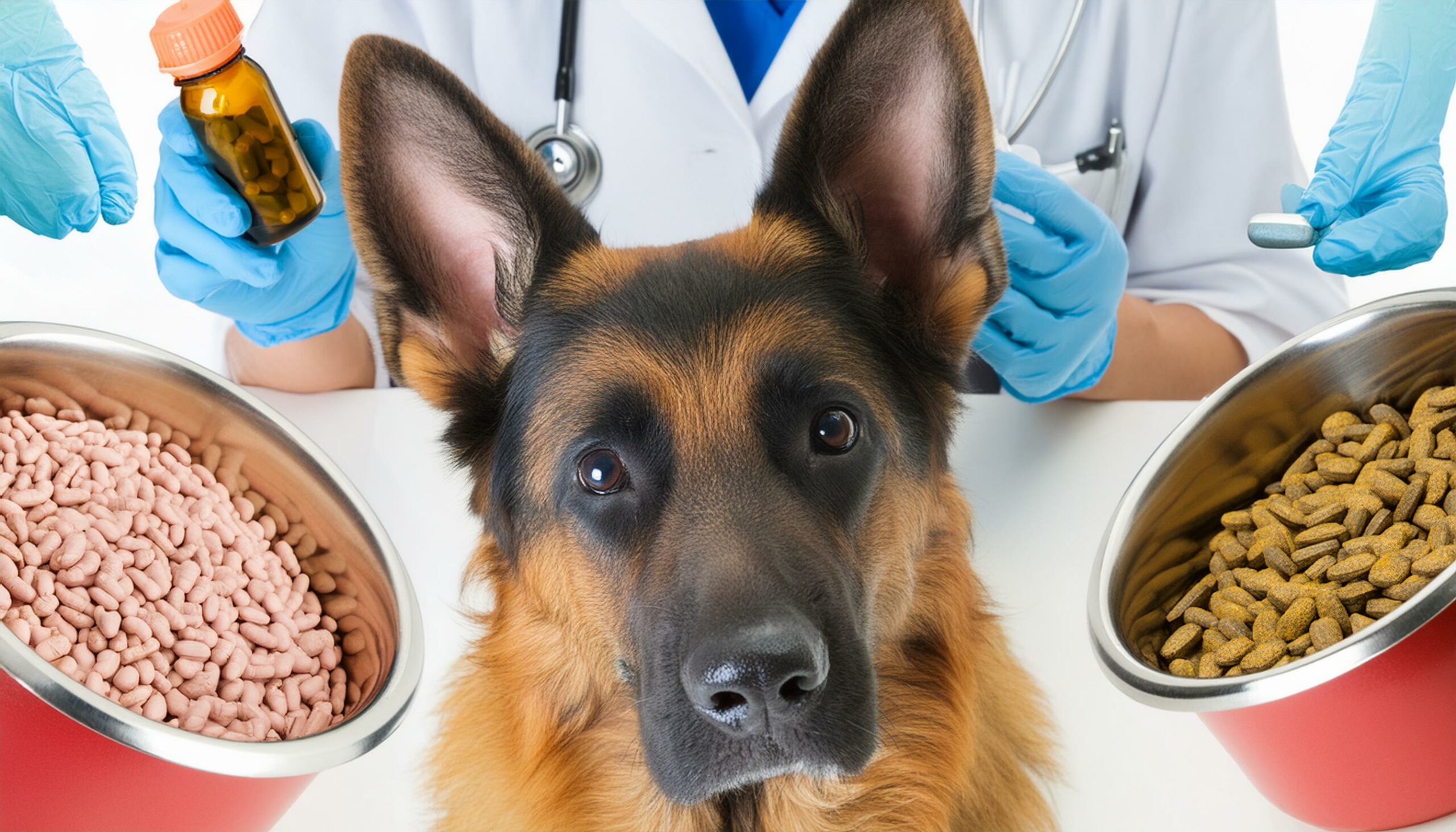Selecting the best food for your German Shepherd is a critical decision that directly impacts their health and well-being. German Shepherds are known for their intelligence, loyalty, and active lifestyle, which means they require a diet tailored to their specific nutritional needs. In this comprehensive guide, we’ll delve into the essentials of German Shepherd nutrition and provide valuable insights into choosing the right food for your furry companion.
Understanding the Nutritional Needs of German Shepherds
German Shepherds have unique dietary requirements stemming from their size, energy levels, and genetic predispositions. Proper nutrition is vital for supporting their overall health, including muscle development, joint function, and immune system strength. Providing your German Shepherd with a balanced diet ensures they receive essential nutrients such as protein, fats, carbohydrates, vitamins, and minerals in the right proportions.
Characteristics of High-Quality Dog Food
When evaluating dog food options for your German Shepherd, it’s essential to consider several key factors. High-quality dog food should feature a substantial protein content, sourced from quality animal proteins like chicken, beef, or fish. Adequate fat content is also crucial for providing energy and supporting healthy skin and coat. Additionally, look for carbohydrates and fiber sources derived from whole grains and vegetables to promote digestive health and stable energy levels.
Best Foods for German Shepherds

There are various dietary options available for German Shepherds, each with its own set of advantages and considerations.
- Raw Diet: Some owners opt for a raw diet consisting of uncooked meat, bones, fruits, and vegetables. Advocates of the raw diet believe it closely mimics the diet of wild canines and offers numerous health benefits, including improved digestion and dental health.
- High-Quality Commercial Dog Food: High-quality commercial dog food formulated specifically for large breeds like German Shepherds is a convenient and reliable option. Look for reputable brands that prioritize premium ingredients and avoid fillers, artificial additives, and by-products.
- Home-Cooked Meals: Homemade meals allow owners to have full control over the ingredients and cooking process. By preparing balanced meals using fresh, wholesome ingredients, you can cater to your German Shepherd’s individual preferences and dietary needs.
Top Recommended Dog Food Brands
- Brand A: Description and Benefits
- Detailed description of the brand and its benefits for German Shepherds.
- Brand B: Description and Benefits
- Detailed description of the brand and its benefits for German Shepherds.
- Brand C: Description and Benefits
- Detailed description of the brand and its benefits for German Shepherds.
Factors to Consider When Choosing Dog Food
Several factors should influence your decision when selecting food for your German Shepherd:
- Age of the Dog: Puppies, adult dogs, and seniors have different nutritional requirements.
- Activity Level: Active dogs may require higher calorie intake to fuel their energy needs.
- Health Conditions: Dogs with allergies or sensitivities may benefit from specialized diets.
- Budget: Consider the cost of long-term feeding when choosing a dog food option.
Supplements for Enhanced Nutrition
In addition to a balanced diet, certain supplements can further support your German Shepherd’s health:
- Omega-3 Fatty Acids: Promote healthy skin, coat, and joint function.
- Glucosamine and Chondroitin: Support joint health and mobility, especially in large breeds prone to hip dysplasia.
- Probiotics: Aid in digestion and strengthen the immune system.
Transitioning to a New Diet
When transitioning your German Shepherd to a new diet, do so gradually over several days to prevent digestive upset. Monitor your dog for any signs of allergic reactions or intolerance, and adjust the diet as needed to ensure their comfort and well-being.
Signs of a Balanced Diet

A well-balanced diet will manifest in your German Shepherd’s overall health and vitality. Look for the following signs to gauge the effectiveness of their diet:
- Healthy Skin and Coat: A shiny, lustrous coat indicates good skin health and proper nutrition.
- Optimal Weight Management: Maintain a healthy weight to prevent obesity-related health issues.
- Stable Energy Levels: Consistent energy levels throughout the day reflect a balanced diet that meets your dog’s energy needs.
Consulting with a Veterinarian
For personalized dietary recommendations tailored to your German Shepherd’s individual needs, consult with your veterinarian. They can assess your dog’s health status, address any specific concerns, and develop a customized diet plan to promote optimal health and longevity.
Common Mistakes to Avoid
Be mindful of the following common mistakes when feeding your German Shepherd:
- Overfeeding: Excess calories can lead to obesity and related health issues.
- Inadequate Hydration: Ensure your dog has access to fresh, clean water at all times.
- Excessive Treats: Limit treats to prevent nutritional imbalances and weight gain.
Conclusion
Choosing the best food for your German Shepherd is a responsibility that requires careful consideration and attention to detail. By understanding their unique nutritional needs and selecting high-quality food options, you can provide your furry friend with the foundation for a long, happy, and healthy life.
